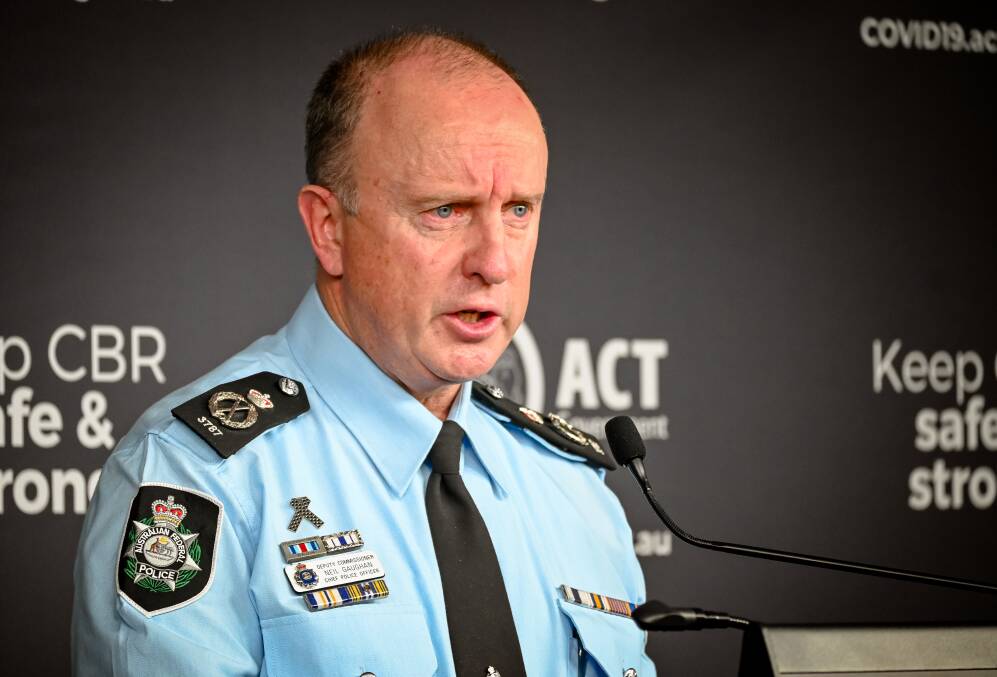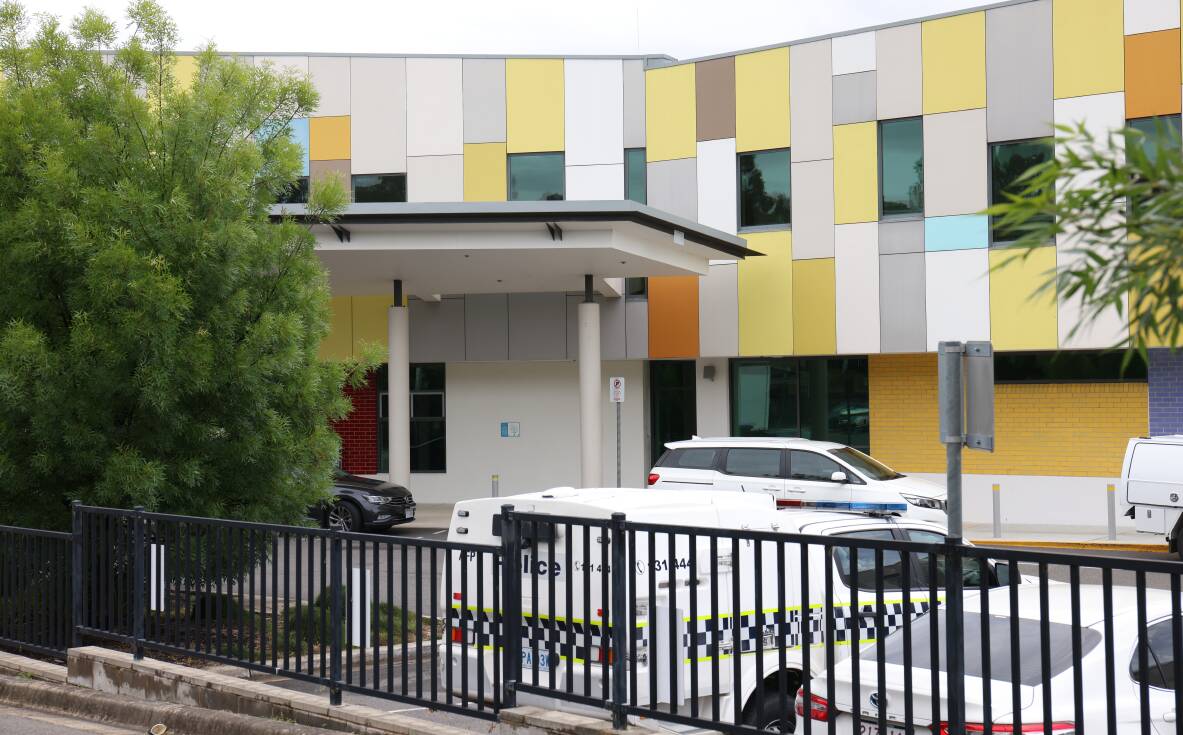The ACT's Chief Police Officer will press the government this year on a revised model for mental health incident response across the territory, concerned that the presence of police at these incidents generally isn't in the best interest of the patients.
Deputy Commissioner Neil Gaughan, who this year will become the territory's longest-serving top cop in well over a decade, also expressed a concern that despite the funded expansion of a collaborative program with ACT Health and ambulance, about 40 per cent of police attendances remain mental health-related.

A successful PACER (Police, Ambulance Clinician Early Response) trial was held in 2019, then received $720,000 in dedicated funding a year later. In July 2022, a second PACER team was funded.
However, demand for the service has steadily outstripped the two-car resource and the territory's top cop said there was a need to "change and adapt".
Deputy Commissioner Gaughan said that in some instances, having a blue uniform at a mental health incident was "like red rag to a bull".
NSW had more than 23,000 callouts to such incidents in 2022 yet its responses have been criticised politically as "not up to the task" for people in crisis. A report by Victoria Police last year revealed its officers attended a mental health incident on average every 12 minutes.
The ACT Policing annual report revealed that officers attended 4166 mental health-related incidents last year at a time when its resources to attend higher priority tasks were stretched.
"One of the focus areas for us [in 2024] is going to have to be how we, as an organisation, continue to police things like mental health," Deputy Commissioner Gaughan said.

"It's not a policing responsibility to deal with people who are sick.
"And we need to come up with a different model for people who need a medical response, not a law enforcement response.
"We are still doing a lot more mental health attendances than what PACER can attend so we just need to think about the model going forward
"PACER had been successful, there's absolutely no doubt about that.
"But the reason it has been successful is not because of the police attendance but because of the attendance of the medical folk.
"It's the clinicians that make the difference, not the cops."
In November last year, the president of the federal police association, Alex Caruana, said that in its decriminalisation of all serious drugs, the ACT government had clearly drawn the line between health issues and policing issues, and that mental health cases should be no different.

"In cases where no criminal offence has been committed and there's no immediate threat to anyone, the police should not be involved," he said.
The drain on police resourcing by mental health attendances became so acute in the London last year that the Metropolitan Police were involved in a behind-the-scenes bureaucratic stand-off with the National Health Service for exactly the same reasons as described by Deputy Commissioner Gaughan.
The Met rolled out its "Right Person, Right Care" program in November last year, saying it was triaging all its responses so that officers only attend mental health calls "where there is an immediate risk to life - such as a person who may be at risk of taking their life, or threatening others harm".
Announcing the new policy, The Met's Assistant Commissioner Matt Twist said that "too often the police are called as the default response to what are health care issues".
"Our officers are compassionate and work under extremely difficult circumstances, but they are not trained to deliver mental health care and it is important people get the support they need from those who have the right skills," he said.







